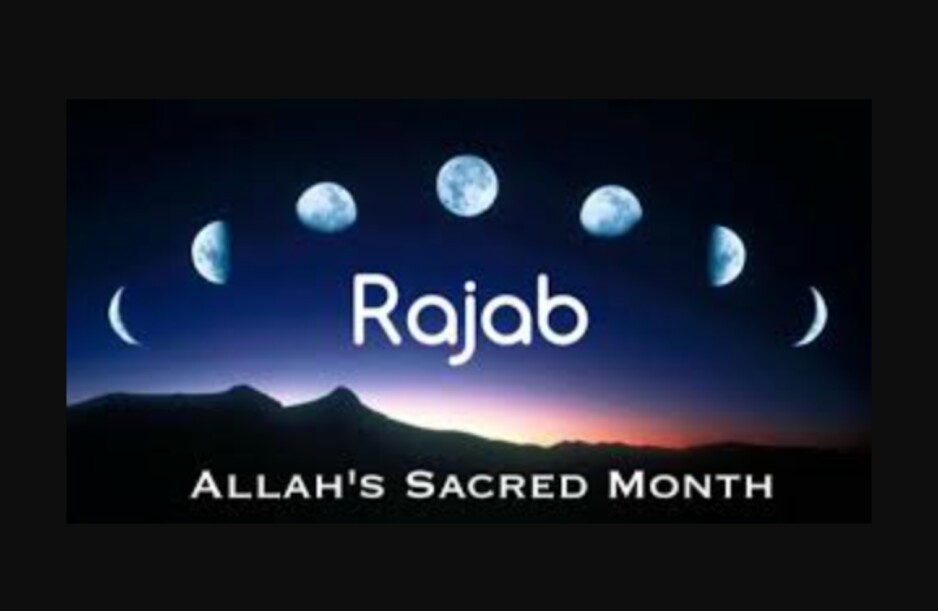By: Ust. Ali Farkhan Tsani, Preacher of Al-Fatah Islamic Boarding School Cileungsi, Bogor, West Java
As days shift to weeks, and weeks to months. Now we are entering the month of Rajab in the 1444 Hijriyyah Calendar. After the month of Rajab, it will be followed by the month of Sha’ban and then the month of Ramadan.
The holy month of Ramadan means only two months left. It’s time to prepare yourself to welcome it by increasing various acts of worship and various goodness in this month of Rajab.
The month of Rajab, like the month of Muharram, is classified as the forbidden months. In the Al-Quran it is stated:
Also Read: Verses of the Universe in Gaza: The Unyielding Light of Faith
إِنَّ عِدَّةَ الشُّهُورِ عِنْدَ اللَّهِ اثْنَا عَشَرَ شَهْرًا فِي كِتَابِ اللَّهِ يَوْمَ خَلَقَ السَّمَاوَاتِ وَالْأَرْضَ مِنْهَا أَرْبَعَةٌ حُرُمٌ ذَلِكَ الدِّينُ الْقَيِّمُ فَلَا تَظْلِمُوا فِيهِنَّ أَنْفُسَكُمْ
Meaning: “Surely the number of months with Allah is twelve months, in Allah’s decree when He created the heavens and the earth, of which four months are forbidden. That (statute) of the straight religion, so do not wrong yourself in the four months.” (QS At-Taubah [9]: 36).
The Tafsir Experts explain that the four forbidden months referred to in the verse are the months of Rajab, Dzulqa’dah, Dzulhijjah, and Muharram.
This explanation is based on a hadith which states:
Also Read: Prophet Sulaiman Alaihi Salam, the Greatest Muslim King of All Time
الزَّمَانُ قَدِ اسْتَدَارَ كَهَيْئَتِهِ يَوْمَ خَلَقَ السَّمَوَاتِ وَالأَرْضَ ، السَّنَةُ اثْنَا عَشَرَ شَهْرًا ، مِنْهَا أَرْبَعَةٌ حُرُمٌ ، ثَلاَثَةٌ مُتَوَالِيَاتٌ ذُو الْقَعْدَةِ وَذُو الْحِجَّةِ وَالْمُحَرَّمُ ، وَرَجَبُ مُضَرَ الَّذِى بَيْنَ جُمَادَى وَشَعْبَانَ
Meaning: “A year rotates as it has been since Allah created the heavens and the earth. One year has twelve months. Among them there are four sacred (haram) months. The three consecutive months are Dzulqa’dah, Dzulhijjah and Muharram. (One more month is) Rajab Mudhor which is located between Jumadil (end) and Sha’ban “. (HR Bukhari and Muslim).
Because of the glory of these months, including Rajab, the scholars really like to do sunnah fasting in them.
Abdullah bin ‘Abbas explained, “Allah specified these four months (Rajab, Dzulqa’dah, Dzulhijjah and Muharram) as sacred months, considered sacred months. Then doing immorality in that month will be a bigger sin, and the good deeds that are done will reap more rewards.”
Also Read: Imaam Yakhsyallah Mansur: Surah At-Tin Indicates the Command to Liberate Al-Aqsa
However, there is no mention of prayer or fasting specifically in the month of Rajab. If you want to perform sunnah prayers, yes sunnah prayers as usual, qabliyah and ba’diyah, which accompany fardhu prayers. But more attention and improvement in this month of Rajab.
Likewise if you want to carry out sunnah fasting Monday and Thursday. Its meaning is to indulge in sunnah prayers and sunnah fasting in the forbidden months, including this month of Rajab.
Imam Al-Ghazali in the Book of Ihya’ Ulumuddin explained that the extinction of fasting becomes stronger if it is carried out on the main days (al-ayyam al-fadhilah). These main days can be found every year, every month and every week.
Regarding this monthly cycle, Imam Al-Ghazali stated that Rajab is in the category of al-asyhur al-fadhilah besides Dzulhijjah, Muharram and Sha’ban. Rajab is also categorized as al-asyhur al-hurum beside Dzulqa’dah, Dzulhijjah, Muharram.
Also Read: Imaam Yakhsyallah: Nurture Love for the Prophet, One Will Be with Whom One Loves
It is stated in the Book of Kifayatul Akhyar, that the most important months for fasting after Ramadan are the forbidden months, namely Dzulqa’dah, Dzulhijjah, Rajab and Muharram.
Imam An-Nawawi in the book Syarh Nawawi ‘ala Shahih Muslim explained, it is true that none of the authentic hadiths regarding Rajab fasting were found. However, it is clear and authentic history that Rasulullah Shallallahu ‘Alaihi Wasallam liked fasting and increased worship in the sacred months, and Rajab is one of the sacred months.
Al-Hafidz Al-‘Iraqi in al-Tabshirah wa al-tadzkirah said, “As for the Hadith dha’if that are not maudhu’ (false), the scholars have allowed them to make it easy in their sanad and narration without explaining their dha’if. As long as the hadith is not related to law and aqidah, but is related to targhib (motivation for worship) and tarhib (warning) such as advice, stories, fadha’il al-a’mal”.
Hopefully, we can pay more attention to and increase our good deeds and good deeds in this month of Rajab, including by carrying out sunnah prayers and sunnah fasting in it.
Also Read: Friday Sermon: Emulating the Firmness of the Prophet in Struggle
Likewise, other acts of worship, both individual ones such as dhikr, shawalat, istighfar and prayer, as well as those of social value such as fond of giving alms, giving alms, and helping others.
At the same time, all of this is in preparation for the arrival of the holy month of Ramadan. God willing. (T/RE1)
Mi’raj News Agency (MINA)
Also Read: Imaam Yakhsyallah: Muslims Unity as Key to Victory of Islam




































 Mina Indonesia
Mina Indonesia Mina Arabic
Mina Arabic